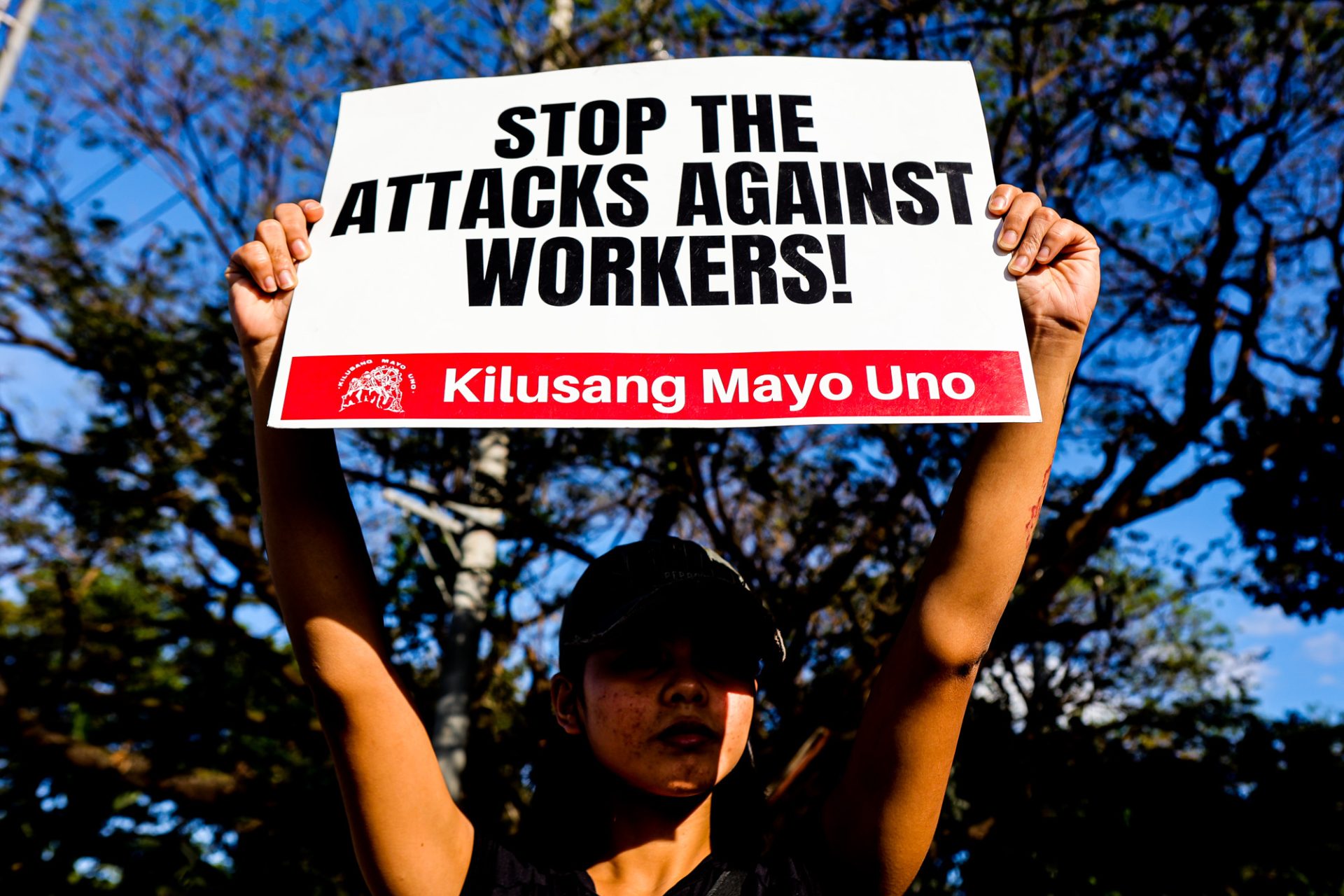Women activists and workers in the Philippines marched in the capital on Thursday to call for an end to the “contractualization” of labor in the country.
“As the country commemorates the International Working Women’s Day on March 8, Filipino women and workers issue this challenge to … end [contractualization] by junking the Herrera Law,” said Clarice Palce, secretary general of women’s group Gabriela.
Amendments to the country’s Labor Code, also known as Herrera Law, has made Filipino workers more vulnerable to exploitation and suppression, according to a labor research group.
The Ecumenical Institute for Labor Education and Research said the law created the legal grounds for contractual work arrangements that cheapened workers’ wages.
Under Articles 106-109 of the law, the Labor Secretary is given the power to issue orders that will promote hiring of contractuals and other non-regular workers.
“Not only has it denied workers of their right to security of tenure, decent wages, and benefits that the labor movement has won through blood and sweat, the scheme has also kept them from forming and joining unions—leaving workers unable to bargain for their welfare and capitalists free to squeeze workers of all they’re worth,” said Palce of Gabriela.
“The Herrera Law destroys dignified work for Filipinos by crushing them under the weight of contractual labor, then licenses the government to violently suppress their right to fight back and demand better working conditions,” she added.
The group Kilusan ng Manggagawang Kababaihan (KMK) also blamed the law, passed 34 years ago, for the “severe damage it caused to the country’s labor force, particularly to women workers.”
“Throughout the years, the Herrera Law has only served the interest of big businesses and industrial enterprises as it allowed widespread contractualization and deprived workers of opportunities for regular employment, social benefits including health and retirement compensation,” said Jacq Ruiz of KMK.
Ruiz said many companies are using the “end of contract” scheme by hiring workers for five months and ending their contracts to avoid regularizing them.
“Alarmingly, the majority of Filipino women workers are found in sectors where [the scheme] and contractualization are pervasive including the service sector,” said Ruiz.
Aside from the Herrera law, the government has implemented policies that the activists said made life worse for Filipino workers, such as the Wage Rationalization Law, Department Order 174 – 17 and the Two-Tier Wage System.
“With the current 8.7 percent inflation since January of 2023, the current minimum wage is not enough to sustain the needs of Filipino families,” said Ruiz.







